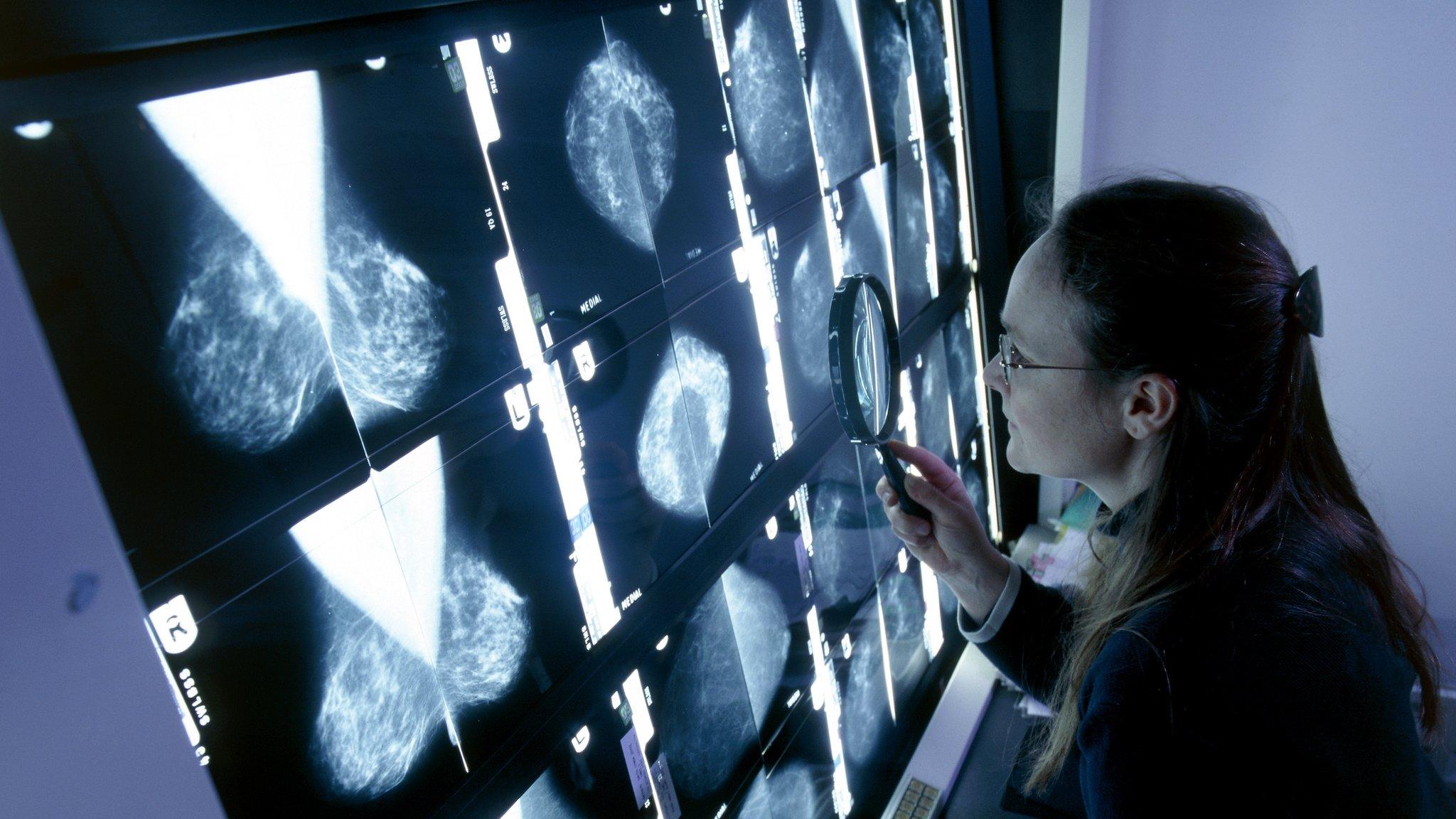US pharmaceutical company defends 5,000% price increase
- Published
Turing Pharmaceuticals boss Martin Shkreli had previously defended the price raise
The head of a US pharmaceutical company has defended his company's decision to raise the price of a 62-year-old medication used by Aids patients by over 5,000%.
Turing Pharmaceuticals acquired the rights to Daraprim in August.
CEO Martin Shkreli has said that the company will use the money it makes from sales to research new treatments.
The drug treats toxoplasmosis, a parasitic affliction that affects people with compromised immune systems.
After Turing's acquisition, a dose of Daraprim in the US increased from $13.50 (£8.70) to $750, external.
The pill costs about $1 to produce, but Mr Shkreli, a former hedge fund manager, said that does not include other costs like marketing and distribution, which have increased dramatically in recent years.

Setting the price: Michelle Roberts, BBC health editor
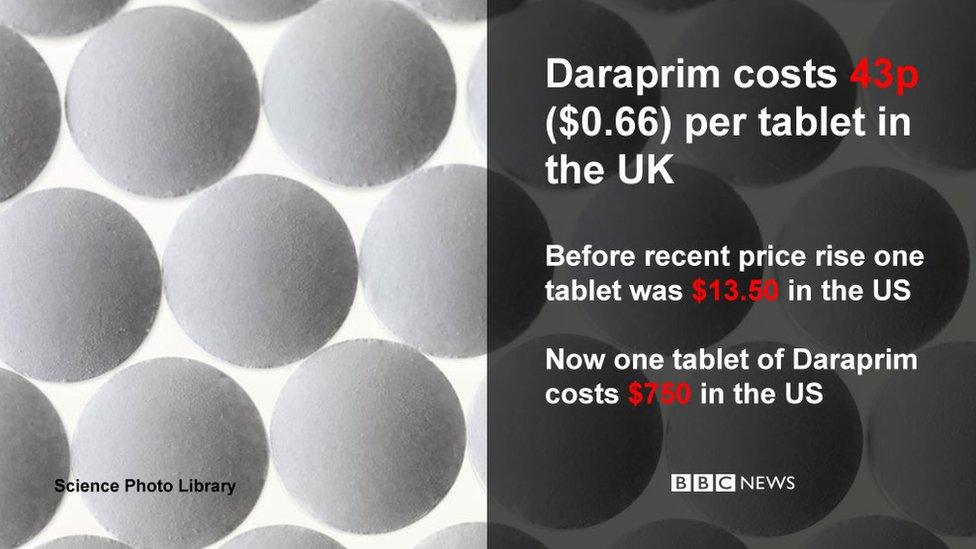
Agreeing a price for any drug is a tricky business.
In the UK, the National Health Service is the main buyer and prices are set through a voluntary scheme between manufacturers and the government, trying to strike the right balance of serving patients and generating money to keep the drug pipeline going. Profits are capped to stop prices creeping too high.
In the US, the buyers are private insurance companies as well as the government through the Medicare and Medicaid system. It's a market and prices can go up and down, depending on what people are willing to pay.
In recent years, pharmaceutical research and development has slowed and companies have to think carefully about what they invest in. Blockbusters such as Viagra pull in money, but orphan drugs for rare diseases can be less attractive. Not many patients use them, and so turning a profit may be difficult.

"We needed to turn a profit on this drug," Mr Shkreli told Bloomberg TV, external. "The companies before us were actually giving it away almost."
He says the practice is not out of line with the rest of the industry.
"These days, modern pharmaceuticals, cancer drugs can cost $100,000 or more, whereas these drugs can cost half a million dollars. Daraprim is still underpriced relative to its peers," he told Bloomberg TV.
On Twitter, Mr Shkreli mocked several users who questioned the company's decision, calling one reporter "a moron".
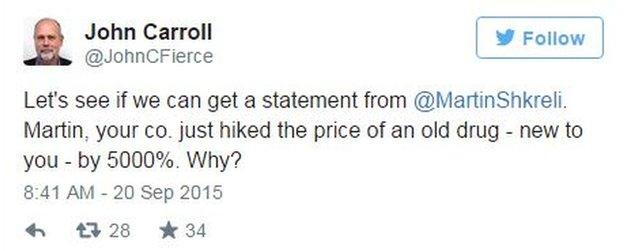
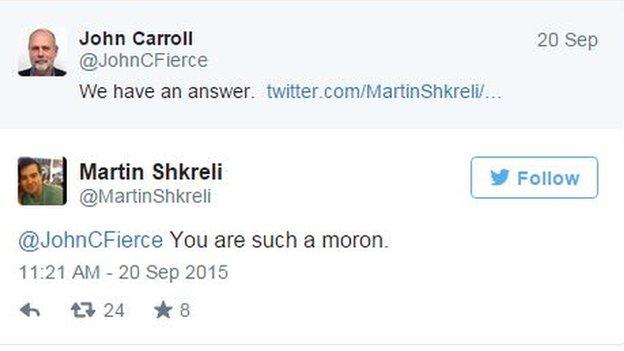
The Infectious Diseases Society of America, the HIV Medicine Association and other health care providers wrote an open letter to Turing, urging the company to reconsider.
"This cost is unjustifiable for the medically vulnerable patient population in need of this medication and unsustainable for the health care system," the groups wrote.
Dr Wendy Armstrong of HIV Medicine Association also disputed the need to develop new treatments for toxoplasmosis.
"This is not an infection where we have been looking for more effective drugs," she told Infectious Disease News, external.
On Wall Street, biotech shares fell sharply on Monday after Democratic presidential candidate Hillary Clinton pledged to take action against firms hiking prices for specialty drugs.
"Price gouging like this in the specialty drug market is outrageous," Mrs Clinton said, citing Daraprim.
How much does it cost to develop a drug?
- Published4 August 2017
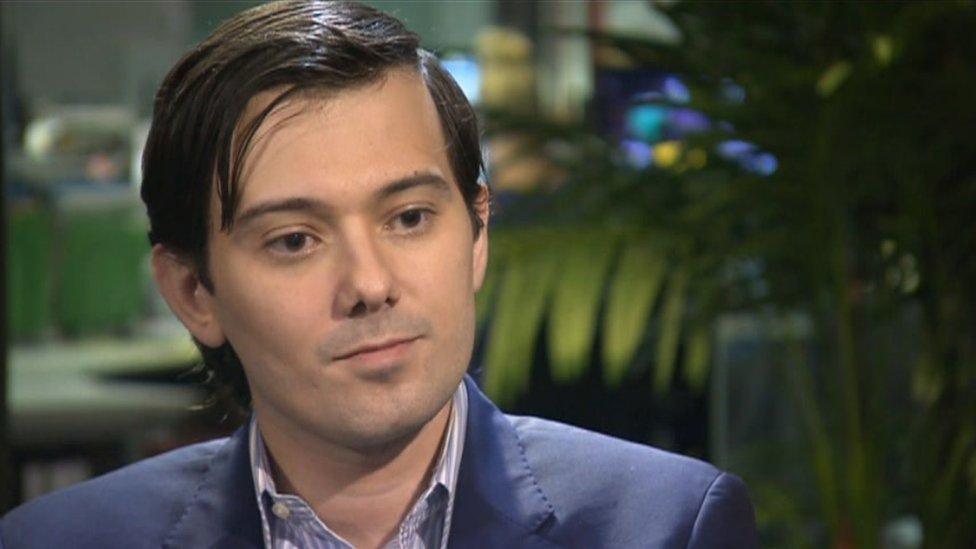
- Published22 September 2015
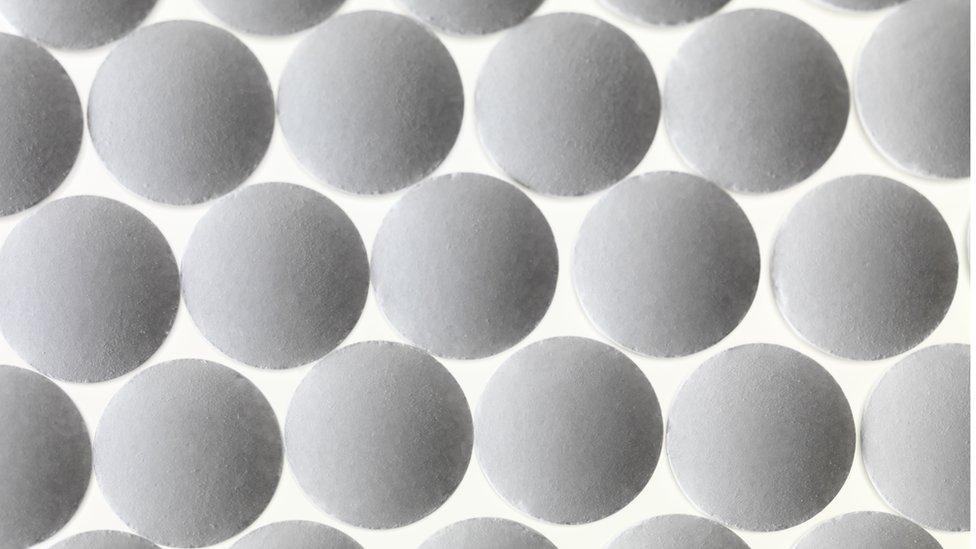
- Published7 August 2014
